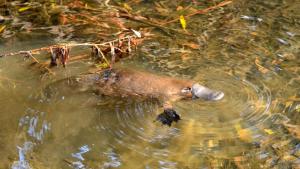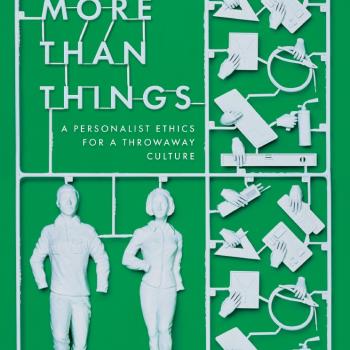
My granddaughter Jaylah started talking about platypuses on the ride home from ballet practice the other day. I interjected: “I would like to be a platypus.” Jaylah immediately retorted: “That’s not possible, Grandpa. You’re a grownup…You’re a person.” Well, to her point, I cannot scientifically become a platypus as a grownup human person. Still, I want to become like this amazing creature. The platypus is a wonderful example of successful adaptation. This is a post on the importance of special adaptations in life.
Let’s play along with Jaylah’s emphatic instructions for a few minutes. My granddaughter said I cannot be a platypus since I am a grownup person. Does that mean I could have been a platypus at an earlier age in life?! If only I had wanted to be a platypus when I was a child, when I still had so much promise in life. I could have been quite astute and be the embodiment of special adaptations! Talk about living with regret! Have you seen the clip of “Opposite George” in Seinfeld? (“Why did it all turn out like this for me? I had so much promise….”) Well, this is “Opposite Paul,” or better, “Platypus Paul.” If only I could go back in time and reverse course! Although I cannot go back and be successful at adapting well to difficult challenges when I was much younger, I can learn to do so now.
Now even though my granddaughter said I cannot be a platypus I do resemble the platypus in certain ways. How so? Like the platypus, I possess certain primitive features, notably my quirky, outdated personality and archaic writing style.
But unlike the platypus, I’m not as adaptable to my current environment. I almost need to be amphibious as I go back and forth between the normal activities of daily life on dry ground and swim about in the abnormal or new normal affairs of 2.5 plus years and growing consciousness-altering reality of Jaylah’s dad’s TBI (my son Christopher). Some days I feel like I’m going to drown in the ever murky, ever just-below-the-surface-sorrow and emptiness of our family’s loss. Maybe you’ve experienced similar struggles and emotions?
Special adaptations or amazing ambidexterity is essential emotionally and mentally when dealing with life-altering experiences. They may be life-altering, but we still have to keep pressing on with work and other activities. Otherwise, we’ll die. The platypus is my personal mascot on account of its special adaptations. We’re talking about survival of the fittest kind!
A Brittanica article observes that the platypus is “a small amphibious Australian mammal noted for its odd combination of primitive features and special adaptations.” What kind of adaptations? Check this out:
“It is exquisitely adapted for its aquatic lifestyle, having a flattened torpedo-like body, dense waterproof fur, and strong front limbs used for swimming as well as digging. Even the head is streamlined, each ear being housed in a groove together with a small eye. The senses of sight, smell, and hearing are essentially shut down while the platypus is submerged to feed, but it possesses a unique electromechanical system of electroreceptors and touch receptors that allow it to navigate perfectly underwater. Similar electroreceptors are also present in echidnas, which, together with the platypus, make up the mammalian order Monotremata, a unique group with an exceptionally ancient history.”
The platypus may look really goofy, like a beaver with a duck bill stitched onto its face, but there is nothing funny about its longevity and adaptability. Comparatively speaking, it lives a long life for a miniature mammal (Check out this video on its very unique features and incredible adaptability that make it beautifully suited to its environmental surroundings).
My Christian faith leads me to look for examples from nature on how to live well. The Bible references various animals and insects from which we can learn and find inspiration. (See for example Proverbs 30:24-31 and Matthew 6:25-27, 34) One insect that can teach us a great deal about how to live is the ant. The Bible urges us: “Go to the ant, you sluggard; consider its ways and be wise! It has no commander, no overseer or ruler, yet it stores its provisions in summer and gathers its food at harvest.” (Proverbs 6:6-8) While nothing is mentioned about the platypus, this creature manifests God’s designs and desire for us to be resilient and adapt amid the various pressures, obstacles, and upheaval we endure in life.
While my granddaughter thinks it’s too late for me to become a platypus, it is never too late to foster special adaptations in life. Learning to adapt is as important as coming up for air and knowing when to head back to shore.
Jaylah didn’t leave the subject alone. She kept pouring water on my wish to be a platypus. Jaylah went on to say, “You can’t be a platypus, Grandpa. You’re a person.” Ah, I thought, now we’re getting somewhere! Perhaps she is reading my personalist ethics book, More Than Things, that I dedicated to her and personalist medical ethicist, Dr. Robert Potter. But then again, maybe not.
I didn’t recognize—or resemble—Jaylah’s definition of a person when I asked her to define the term. It’s not something one can find in my book on the human person. Jaylah said a person “colors, plays, and goes to ballet.” She also kept insisting that a person fights. Believe me. She’s got spunk, a real fighting spirit. My granddaughter’s grit amid so much pain and heartache definitely add new meaning to the survival of the fittest.
In good-natured kidding, I told Jaylah that I felt excluded from her definition of a person. I tried to reason with her interspersed with silly crying and fake whimpering that her definition of a person excludes me, but to no avail. Jaylah only laughed and reinforced her point.
I don’t color. I don’t play. Nor do I perform ballet, though I often joke around saying I would like to join Jaylah’s ballet class. But every week on the way to practice, Jaylah insists I can’t wear ballet slippers or a tutu, and I’m too big to join her ballet class. All I am to her is a grandpa, not even a platypus, and Jaylah made clear that a platypus is not a person.
Talk about a crisis of personal identity! What I am, what I want to be, does not fit Jaylah’s definition of a human person. I’m like a beaver-with-a-duck-bill-stitched-on-its-face-out-of-water!
In all actuality, though, these van rides to and from ballet practice with my granddaughter bring a little levity to all the gravity of our painful journey with TBI. She is such a profound, precious little person, and I tell her daddy so, looking for signs of response and conscious control whenever I visit him.
Christopher is also a profound, precious person, though much bigger than the beaver with a duck bill. Still, may he learn to adapt like this creature, as he lives just below the surface of his body most of the time. He and I both need the equivalent of that amazing little amphibious creature’s electroreceptors. The electroreceptor equivalent will help us navigate perfectly under the turbulent waters of our daily experience.
As I near the conclusion of this post, I wish to share with you a few ways I have been adapting amid this most dramatic season of my life. First, special adaptations for me on this journey with TBI the past 2.5 plus years have included learning to express openly my vulnerable thoughts and experiences with those I trust and who can help me navigate and manage the emotions. Second, I have been learning to be kind to myself and take a few hours off here and there from the relentless struggle in advocating for Christopher and his family and other pressing challenges in life to recharge my (electroreceptor-) battery through writing, reading, and going on a half-day trip with my wife. After all, to quote Dirty Harry, “A man’s got to know his limitations.” Third, learning how to laugh and not simply cry is essential. It is essential to create different emotional compartments in life so that one kind of emotion does not take total control. As a former boss used to say to me, “Sometimes you have to laugh to keep from crying.” Joking around with Jaylah inflates my soul with joy amid the otherwise deflating sorrow. Last but not least, learning to take to heart Booker T. Washington’s point on adjusting expectations for life and measuring success is essential: “Success is to be measured not so much by the position that one has reached in life as by the obstacles which he has overcome.”
Please don’t tell Jaylah or she’ll scold me, but I don’t think it’s ever too late to grow and develop special adaptations as a grownup. No, it’s never too late, even with TBI, due to the possibility of neuroplasticity. It’s never too late to grow and develop, even for an ancient species labeled “Grandpa.” No, it’s never too late to evolve as a person and to become exquisitely adapted to dramatic changes in life. It’s never too late to become a platypus.














